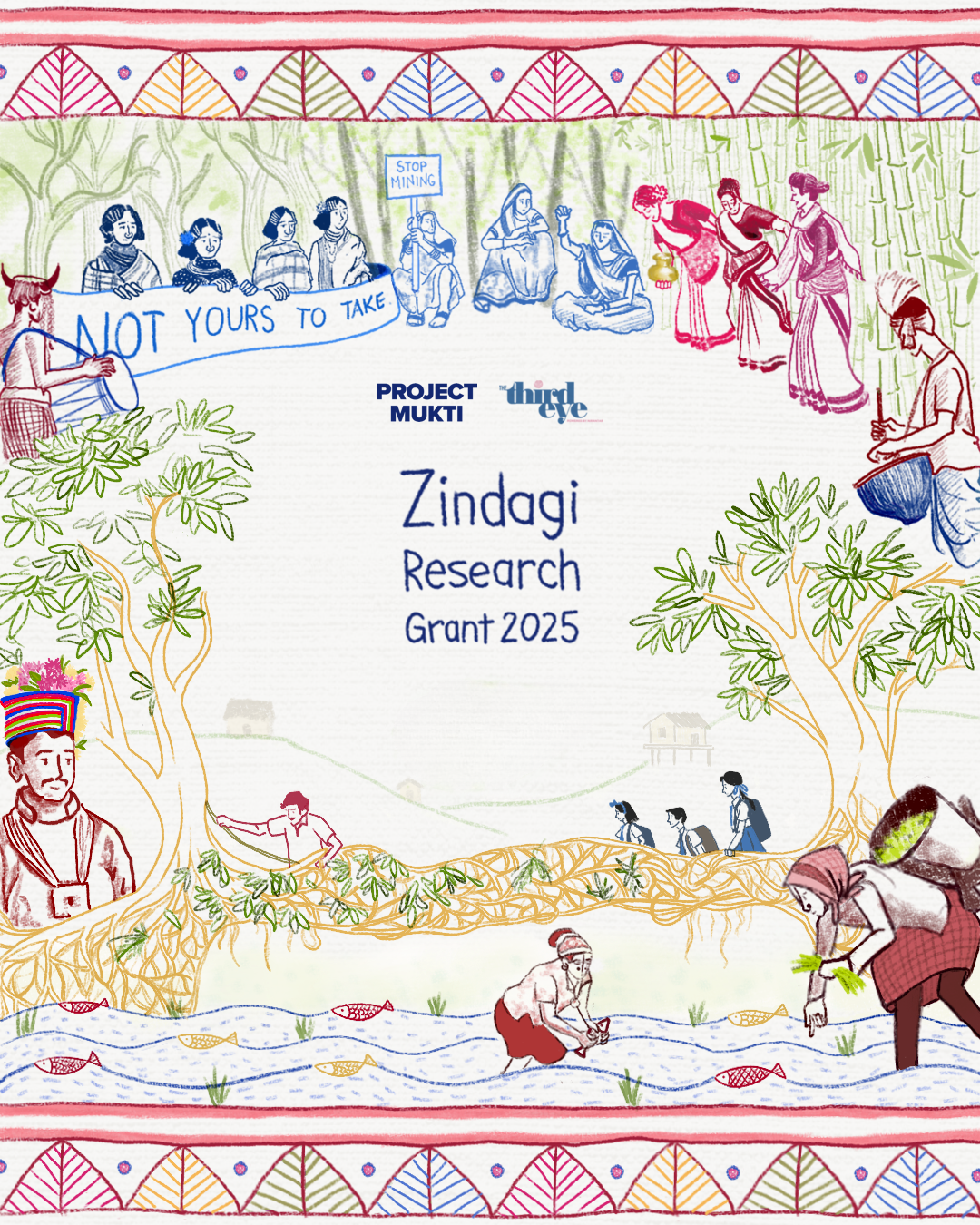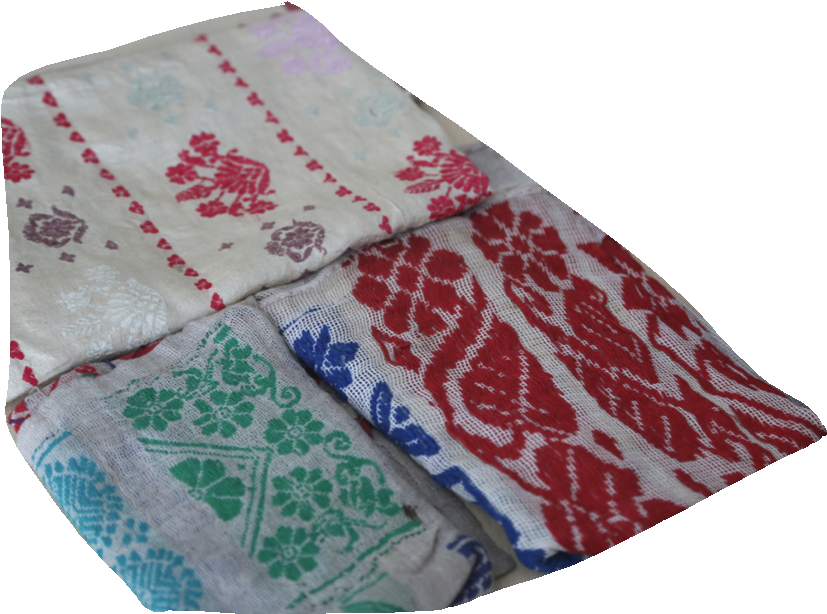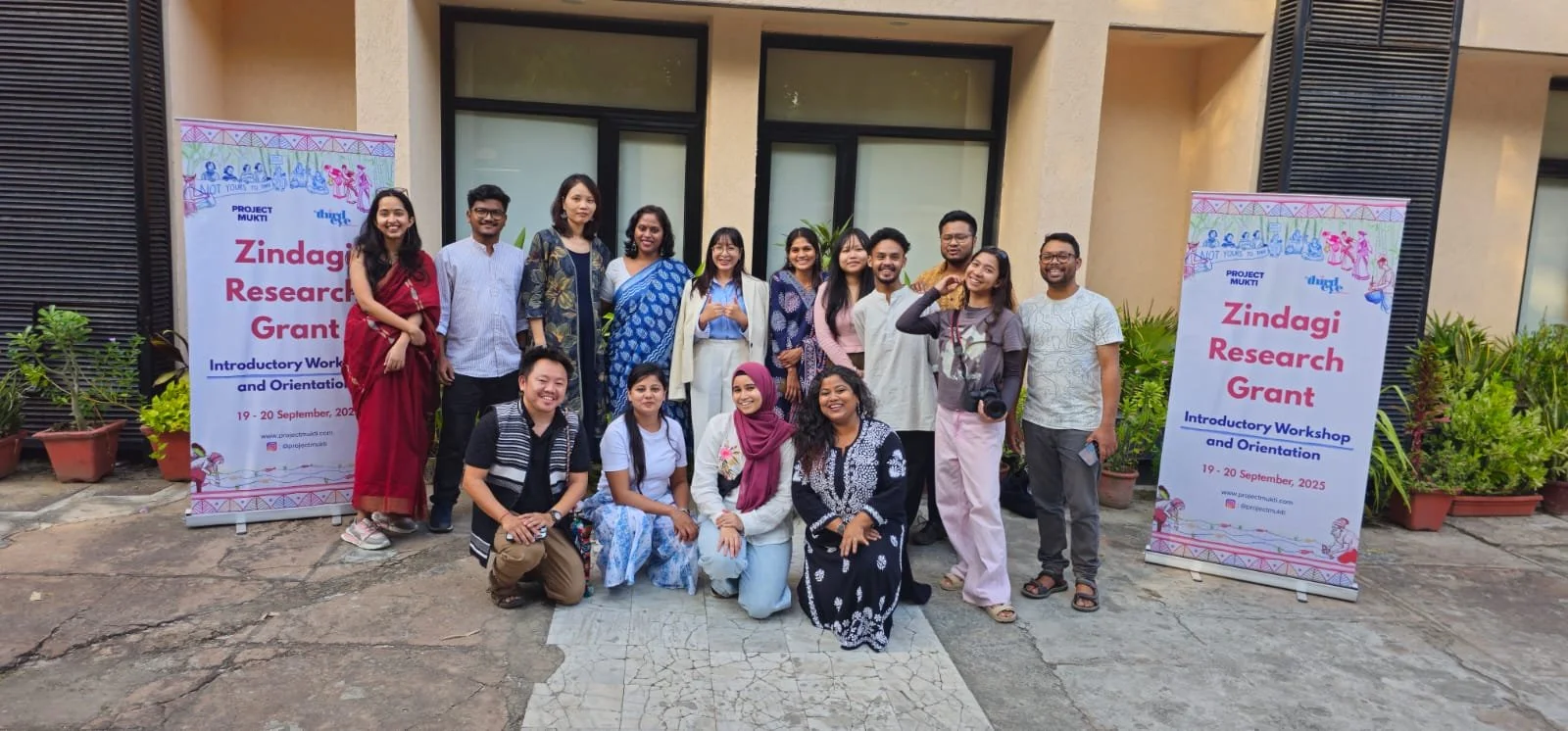Zindagi Research Grant Orientation and Workshop
On 19-20th September 2025, Project Mukti successfully conducted its orientation and workshop for the first edition of Zingadi Research Grant (ZRG), in collaboration with The Third Eye.
This event brought together the Zindagi Research Grantees, Resource persons, Project Mukti team, and the TTE team at USO House in Delhi for two days that were as much about learning as they were about building community.
The workshop opened with introductions, icebreakers, laughter, and reflections on what indigeneity” and “ecology” mean in our own languages. This was followed by the research proposal presentation of our grantees Chandnee and Nilabh.
Chandnee’s research focuses on co-creating an indigenous pedagogy and curriculum for children.
Nilabh presented his research idea on the textile practices of the Kaibartha community of Assam, documenting the erasure of the labour, and finding ways to archive the community’s art and identity.
In the expert sessions by our resource-persons Neelam Kerketta and Ebo Mili, they guided us on decolonizing research methods, indigenous ecological knowledge, and resisting exploitative climate practices.
The day concluded with mentorship conversations led by The Third Eye team, who explained how mentorship and the editorial process work at their organisation and what kinds of support they offer grantees.
Day two carried the momentum forward with personal, creative, and reflective sessions.
It began with our grantee Lucky’s proposal presentation on the experiences of trans and gender non-confirming people from tribal and marginalised communities during floods in Assam, and their stories of survival and resilience.
Dr Zothani Khiangte joined online to speak about weaving as an expression of cultural identity, resistance, and women’s agency. This was followed by Rija’s presentation of her research proposal on memory work among Arunachali youth striving to stay connected to their roots.
A meditative embroidery session with Sanghapali Aruna invited participants to reflect on memories and feeling through craft, while an auto-ethnography writing exercise with Romik grounded theory with lived experience.
The day blended personal stories with collective critique, and closed with group photos, tea, and a celebratory dinner.
By the end of the workshop, grantees had not only sharpened their research proposals but also expanded their methodological horizons.
Together, we explored ethical and critical approaches to research on indigenous culture, ecological practices, climate activism, feminist methods, memory work, and auto-ethnography.
Across two days, we laughed, embroidered memories, wrote personal journeys, and debated research ethics. Grantees left with guidance, clarity, and new solidarities.
The workshop reaffirmed our collective commitment to research that listens, heals, and gives back to the communities it emerges from.










